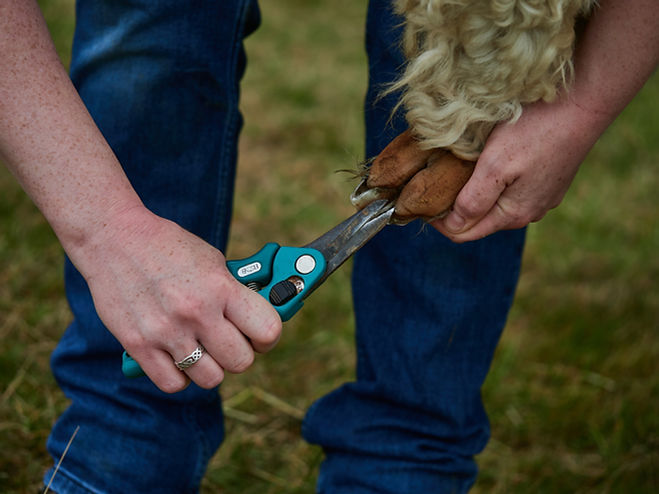
What do alpacas eat?
How much grazing does an alpaca need?
The recommended stocking density for alpacas is 5 alpacas per acre. If your grass quality is very high or very low, you may need to increase or lower the ratio slightly. Ideally, the paddock should be split into two halves so that one half can be rested at any given time. Rotation should then occur every 6 - 8 weeks to help reduce parasite burden, particularly worms, and ensure that the grass has time to rest and recuperate.
Are any plants poisonous to alpacas?
It is vitally important to check your pasture regularly for poisonous plants such as Foxgloves, Rhododendrons, Ferns, Rye Grass, Rushes, Daffodils, Privets, Rapes, Ragworts, Laburnums, Hemlocks, Marsh Mallows and more. Check out this helpful document from the BAS for an extensive list on what to look out for.
What supplementary feed do alpacas need?
Originating from the mountains of Peru in Southern America, alpacas are used to eating at over 4000m above sea level, where vegetation is often sparse and poor. Over time, alpacas digestive systems have adapted and become extremely efficient at absorbing nutrition. Therefore, alpacas should not typically need much supplementation apart from good quality grass and ad-lib hay all year round. That being said, there are times when alpacas do need supplementary feed:
-
During seasons when pasture is limited
-
If alpacas are in a compromised physiological state i.e. during pregnancy, lactation or growth
-
If alpacas have a poor body condition score i.e. illness or old age
What brand of food can I feed my alpacas?
Camelibra is a vitamin & mineral supplementation designed specifically for camelids and can be mixed with other feed such as Fibregest (although there are other feeds on the market). Make sure to measure out the appropriate amounts for weight, age, sex, condition as the volume across feeds can differ greatly. Beware feeds with added molasses as this is sugary and fattening. In winter time, or when you need to put condition on an alpaca, sugarbeet can be fed - ALWAYS make sure it is soaked as according to the packaging, as it can be fatal if fed dry. Allow 4ft trough space p/head to reduce aggression amongst alpacas at feeding time and to ensure shy alpacas get the nutrition they need.
Do alpacas require any supplements?
Alpacas need Vitamin AD&E paste throughout darker months in places of lower sun levels, such as the UK, as they are susceptible to Vitamin D deficiency. This is particularly important for growing alpacas to prevent rickets, those with darker skin/heavy fleeces (which may block UV light and reduce absorption of vitamin D) and pregnant females to aid growth of unborn cria. Administer ADE & B12 Paste orally every 4 - 6 weeks during October - March/April. Check the dosage according to the label and do not overdose, as this can be toxic to the alpaca. You can purchase this from Alpaca & Llama Care, Homestead Farm Supplies & Eggsport, If buying a 300ml tube, an applicator gun will also be required. If you have alpacas that like to spit out the paste, vitamin injections can be used - consult your vet for further information on this. Vitamin blocks, licks or buckets are not recommended as alpacas do not readily lick themselves or anything else, so it is unlikely they will get the minerals and vitamins they need from this method.
Remember this is a guide only. Always consult your vet when considering appropriate feeds and supplements for your herd.

Learn How To Look After Alpacas
If you wish to embark on the rewarding journey of alpaca keeping, whether as newcomers to the field or prospective owners, and you desire to possess the confidence and knowledge to maintain their optimal health, your search concludes here! Choose from the learning opportunities below, which have been crafted to provide you with a wealth of alpaca husbandry knowledge and understanding. This foundation will ensure a successful and fulfilling alpaca venture.
